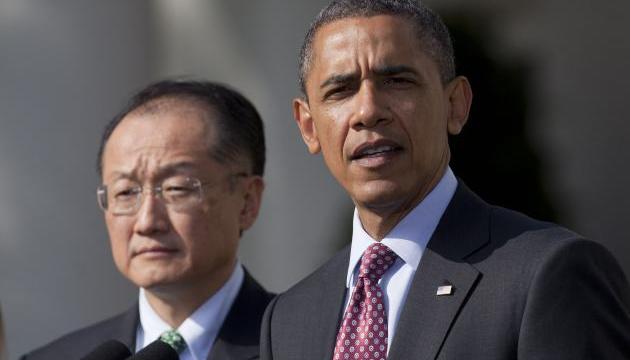The World Bank and the Health of Nations

For nearly 70 years, the World Bank has been an institution led by bankers, economists, technocrats and politicians – until now. Obama’s inspired choice of Jim Yong Kim, president of Dartmouth College, as his pick to head the World Bank has the potential to change our paradigm for world economic development. While largely unknown to many inside Washington political circles, Kim was recently named as the 9th most creative thinker in business by Fast Company magazine. Even more importantly, Kim has a background in global health policy and has dedicated his life to working for the world’s poor through organizations such as Partners in Health. For the first time ever, a health care expert will be at the helm of one of the world’s most influential economic institutions.
The development paradigm for the past half-century has been that wealth inevitably leads to health, and that only wealthier economies are able to foster the conditions for a healthier population. Led by economists and bankers, international development efforts typically start with efforts to jump-start economic growth, with the belief that a rising economic tide will help to eradicate disease and illness. From this perspective, it’s tempting to think of Kim’s work in creating healthcare solutions for the poorer nations of the world as being uniquely applicable only to emerging markets.
But what if we flip the paradigm? What if health should become the starting point for international development, and that healthy populations should become the fundamental building block for healthy economies? Instead of The Wealth of Nations, what if we really should be talking about The Health of Nations?
There is, indeed, a sub-genre of economics and growth theory that makes exactly this point: that a population’s individual and collective health affects a nation’s economic development and performance. Kim’s academic and health care credentials would suggest that he is potentially receptive to this framework. A physician and expert in tuberculosis, Kim served as Professor of Medicine and Social Medicine and Chair of the Department of Global Health and Social Medicine at Harvard Medical School. In addition, Kim helped to orchestrate many of the World Health Organization’s HIV/AIDS initiatives. He has dedicated his entire career to helping the world’s poor in places like Haiti and Rwanda and has been lauded by the likes of former President Clinton for his work with the Clinton Global Initiative.
Certainly, that had to be part of Obama’s political calculus of appointing Jim Yong Kim as his choice to become the new head of the World Bank. Obama chose Kim over a more conservative pick, such as economist Jeffrey Sachs, who openly lobbied for the job based on his previous development work in emerging markets. The deciding variable had to be Kim’s unique perspective as a healthcare expert. Writing in The Wealth of Nations, Adam Smith noted that, “No society can surely be flourishing and happy of which by far the greater part of the numbers are poor and miserable.” Indeed – that appears to be exactly the basis for the new World Bank paradigm, in which a physician is better able to lead a Bank than a banker. International development is a tool for world health, yes, but maybe world health is a tool for international development as well.
image: Female Doctor Holding Piggy Bank / Shutterstock





